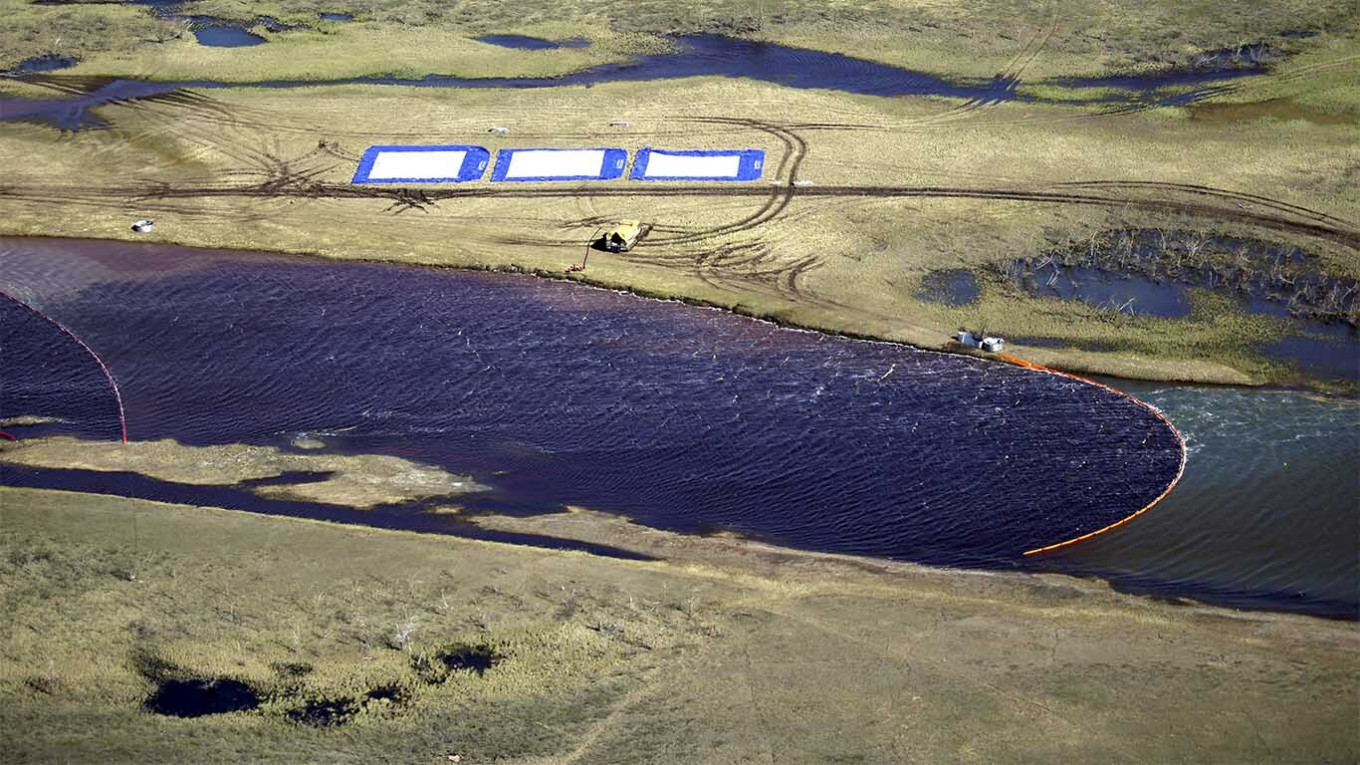
A Russian court fined mining giant Nornickel 146 billion rubles ($2 billion) Friday for its role in the worst oil spill in the country’s modern history.
Some 21,000 tons of diesel fuel poured into the ground and waterways surrounding Nornickel’s base — the city of Norilsk inside the Arctic circle in Russia’s Krasnoyarsk region — last May when an oil storage tank sank into melting permafrost, spilling its toxic contents and polluting lakes and rivers up to 30 kilometers away.
In a ruling Friday, the Krasnoyarsk Arbitration Court said it largely agreed with government claims over the cost of the damage caused by the spill and ordered a Nornickel subsidiary to pay a record fine of 146.2 billion rubles ($2 billion). Government prosecutors had demanded 148 billion rubles, while Nornickel claimed the damages should be calculated at just 21 billion rubles ($280 million).
Environmentalists and authorities called the spill the worst ecological disaster to ever occur in the Arctic. Russian authorities blamed the company for its failure to prevent or stop the disaster.
A report by outside consultants into the disaster — commissioned by Nornickel — also supported that view. It found that a cocktail of the tank’s design flaws, management failures, and rising temperatures had made the disaster “inevitable.” The report heavily criticized the company for miscalculating risks and not spotting warning signs or effectively responding to the spill once it had started.
The head of Russia’s environment agency Rosprirodnadzor, Svetlana Radionova, welcomed the decision.
“We won! Thank you to everyone who cares about the environment,” she said in an Instagram post from inside the court. “For the first time in the history of Russia, we loudly declare: ecology is everyone’s business! And the polluter will pay!”
Nornickel’s attempts to reduce the fine were based on technicalities in the way the 148-billion-ruble sum had been calculated, rather than denying culpability.
Shares in the company — which is controlled by Russia’s richest man, Vladimir Potanin — dropped 1.5% after the fine was announced. In accordance with Russian law, the company had previously set aside a reserve fund of $2.1 billion — the size of the government’s initial damages claim — to pay any eventual fine.
In a statement issued after the ruling, Nornickel said it would “carefully study the court’s decision after we receive the full text.”
The company did not say if it would launch an appeal. If it chooses not to, the fine must be paid within one month, a spokesperson said.
